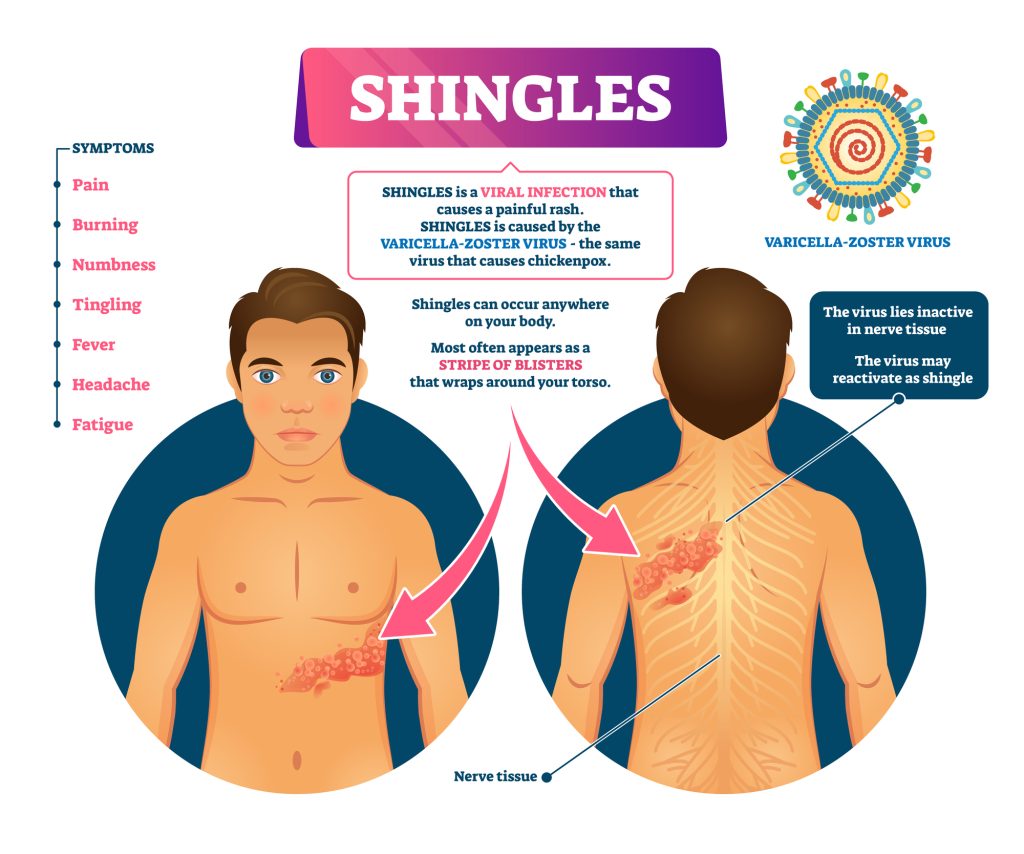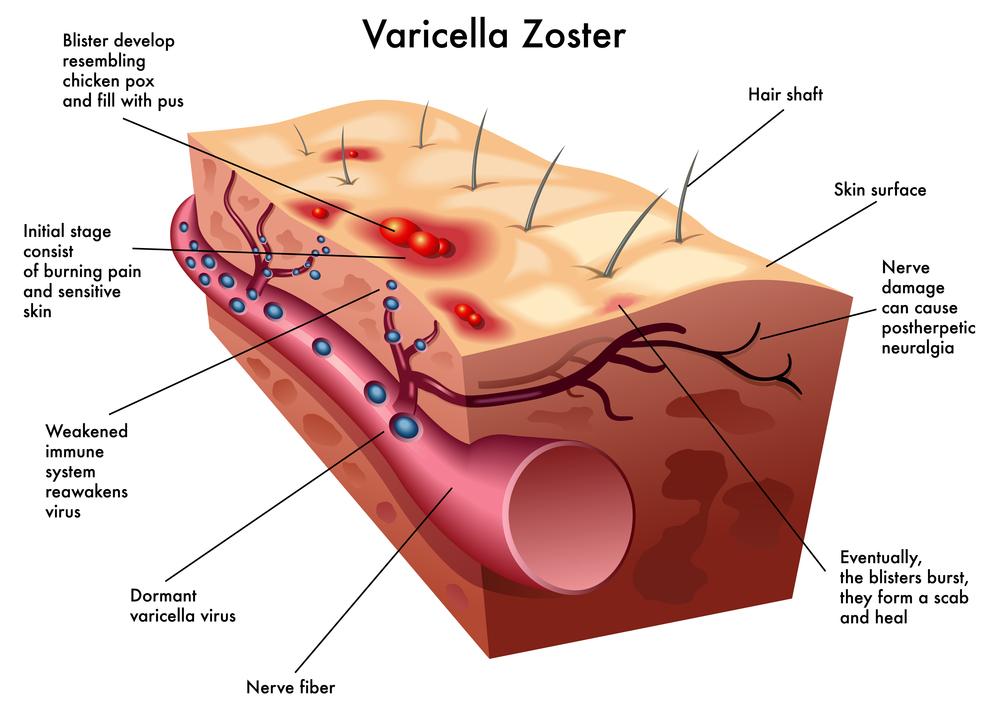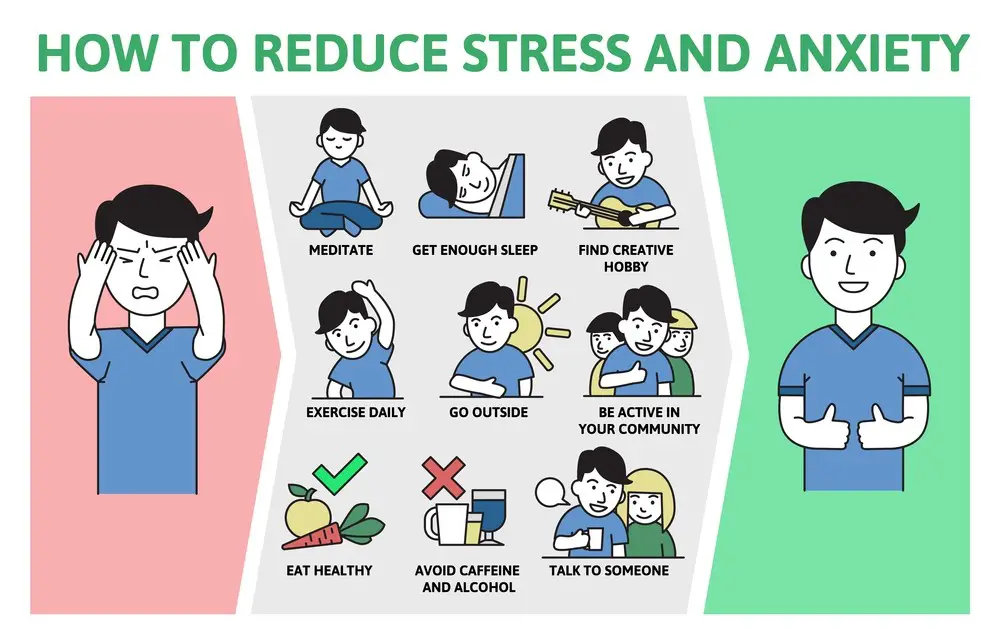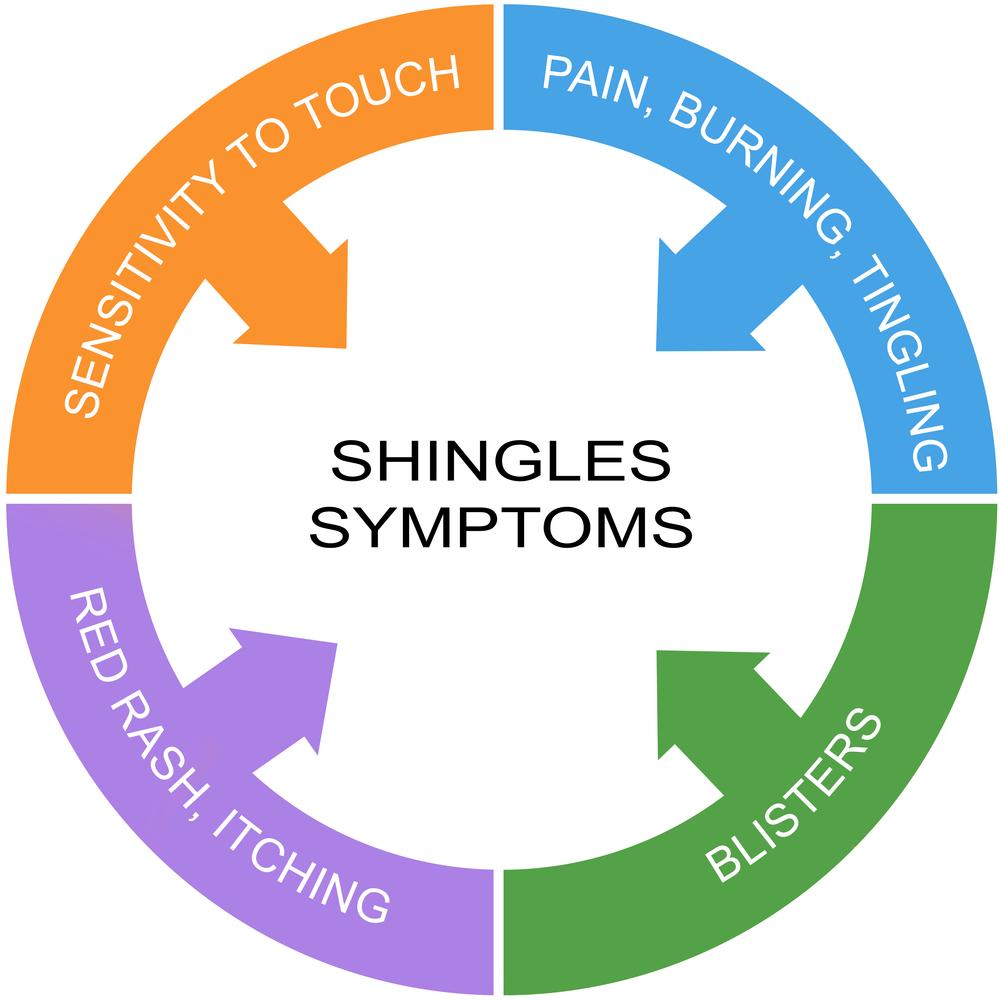As a BetterHelp affiliate, we receive compensation from BetterHelp if you purchase products or services through the links provided
Have you ever questioned the link between stress and shingles? You’re not alone. Many have pondered this connection, and it’s not as far-fetched as it might seem initially. This blog post aims to delve into the science that explores the relationship between stress and shingles, providing a clearer understanding of how one may influence the other.
• We’ll uncover the scientific basis explaining the stress-shingles connection, demystifying its how and why.
• Living with shingles can be a painful ordeal. This blog also shares practical advice on managing this condition and alleviating some of the discomfort it brings.
Unraveling the bond between stress and shingles satisfies our curiosity and gives us the knowledge to better manage our health amid life’s challenges.

Understanding Shingles
Comprehending the link between stress and shingles first requires an understanding of shingles and their development. Shingles, also known as herpes zoster, is a painful rash caused by the varicella-zoster virus (VZV). This is the same virus responsible for chickenpox. Once you’ve had chickenpox, the virus remains dormant in your body, waiting for the right conditions to reactivate and cause a shingles outbreak.
Some factors can increase your risk of developing shingles, such as older age, a weakened immune system, and chronic psychological stress. Studies have shown that high-stress levels may increase the likelihood of a shingles outbreak, especially in those with compromised immune systems. But how does stress affect our immune system and increase the risk of shingles?
What Is Shingles?
Shingles is a painful rash that typically presents as a single stripe of blisters on one side of the body, often wrapping around the torso. Symptoms of shingles include fluid-filled blisters, fever, headache, and vision problems. The rash can cause severe pain and discomfort, sometimes lasting for weeks or even months after the blisters have healed.
The virus responsible for shingles is the varicella-zoster virus. The same virus also causes chickenpox. After a person has recovered from chickenpox, the virus remains dormant in the body, and in some cases, it can reactivate later in life, causing shingles. Certain factors, such as stress and a weakened immune system, can trigger shingles. A shingles vaccine can help prevent the reactivation of the varicella-zoster virus in some individuals.
The Varicella-Zoster Virus
The varicella-zoster virus is a sneaky one. After causing chickenpox, it retreats into the body’s nerve cells, lying dormant and hidden from the immune system. The virus can remain dormant in some individuals for a long time. When it reactivates, it can cause shingles. It’s not entirely clear why the virus reactivates in some people but not in others, but stress is believed to play a role in this mysterious process.
When the immune system is weakened due to stress or other factors, it may be less effective at keeping the varicella-zoster virus in check, allowing it to reactivate and cause a shingles outbreak. While not everyone who experiences stress will develop shingles, those with a history of chickenpox and weakened immune systems are at a higher risk.
 Stress and Its Impact on Health
Stress and Its Impact on Health
Stress is an unavoidable part of life, but when it becomes chronic or overwhelming, it can harm our physical, mental, and psychological well-being. Our bodies respond to perceived mental stress by releasing hormones like cortisol, which can suppress the immune system and leave us more vulnerable to infections, including the varicella-zoster virus.
Effective stress management prevents shingles and maintains general health and well-being in disease control.
The Stress-Shingles Connection
The connection between stress and shingles is a complex one, with research suggesting that high levels of psychological stress may increase the risk of developing shingles. Stress can weaken the immune system by reducing the number of killer cells that fight off viruses like the varicella-zoster virus and by increasing the production of cortisol, which can hinder the body’s anti-inflammatory response. In this context, it is important to understand how stress triggers shingles and find ways to manage stress effectively.
While stress may contribute to developing shingles, it is not the only cause. Other factors, such as age, weakened immune systems, and certain medical conditions, can also increase the risk of shingles. Nevertheless, recognizing and managing stress can be crucial in preventing shingles outbreaks and maintaining overall health.
More research is needed to comprehend the relationship between stress and shingles fully. However, stress reduction is vital for those at greater risk of experiencing this discomforting condition. By adopting stress reduction techniques and lifestyle changes, individuals can reduce their risk of shingles and improve their overall well-being.
 Stress Reduction Techniques
Stress Reduction Techniques
Adopting effective stress reduction techniques is crucial for managing stress and potentially averting shingles outbreaks. Some strategies for coping with stress include:
- Getting enough sleep
- Maintaining a balanced diet
- Engaging in regular physical activity
- Avoiding alcohol and drugs
In addition to these lifestyle changes, relaxation techniques such as:
- Deep breathing exercises
- Yoga
- Meditation
- Progressive muscle relaxation
It can help reduce stress levels and improve overall well-being. By incorporating these strategies into daily life, individuals can decrease their risk of shingles and enhance their overall health and quality of life.

Coping with Shingles
If you’re faced with a shingles outbreak, knowing how to handle the condition and lessen its effect on your daily life is imperative. Prompt medical attention, proper care of the rash, and consultation with a healthcare provider regarding any other health issues are essential when coping with shingles.
Aside from medical treatment, several self-care tips can help alleviate shingles symptoms and promote faster healing. These include keeping the rash clean and dry, wearing loose-fitting clothing, and using cool compresses to reduce discomfort.
Managing stress during a shingles outbreak is also crucial, as it can help prevent further complications and promote faster recovery. Implementing stress reduction techniques, such as:
- practicing deep breathing exercises
- engaging in regular physical activity
- getting enough sleep
- practicing mindfulness and meditation
- seeking support from friends, family, or a therapist
Mindfulness can be particularly beneficial during adverse life events, especially during challenging times.
 Shingles Treatment and Management
Shingles Treatment and Management
As for shingles treatment, doctors often prescribe antiviral medications like valacyclovir, acyclovir, and famciclovir to alleviate the severity and shorten the duration of the illness. It’s essential to seek medical attention within 72 hours of the onset of shingles symptoms, as early treatment can prevent complications and promote faster healing.
Pain management is also critical to shingles treatment, as the condition can cause severe pain and discomfort. Over-the-counter pain relievers or prescription medications from a healthcare provider can help alleviate pain and make it more manageable.
Finally, home care measures can provide additional relief from shingles symptoms. Applying calamine lotion, using wet compresses, and taking colloidal oatmeal baths can help relieve itching and promote healing.
Conclusion
In conclusion, the connection between stress and shingles is complex, with research suggesting that high levels of psychological stress may increase the risk of developing this painful condition. While stress is not the sole cause of shingles, managing stress levels is essential for those with a higher risk of developing shingles and for maintaining overall health and well-being.
FAQs
Can stress actually trigger shingles?
It’s believed that stress can potentially trigger a shingles outbreak, although the exact relationship is complex and still being studied.
What are the symptoms of shingles?
Common symptoms include a painful rash, itching, fever, and fatigue. It’s always advisable to consult a healthcare professional if you suspect you have shingles.
How can I manage stress to prevent shingles?
Stress-reducing practices like meditation, exercise, and a balanced diet may help. It’s also beneficial to consult with healthcare providers for personalized advice.
Is there a vaccine for shingles?
Yes, there’s a vaccine to help prevent shingles. It’s recommended for adults 50 years and older.
How is shingles treated?
Antiviral medications are often prescribed to treat shingles. See a healthcare provider for an accurate diagnosis and treatment is crucial.
Can shingles reoccur?
Shingles can reoccur, though it’s less common. Having a robust immune system and managing stress are key to minimizing the risk.
- Left Arm Pain and Anxiety: Understanding the Relationship - November 23, 2023
- Anxiety Paralysis: Coping with Overwhelming Stress - November 23, 2023
- Anxious vs. Nervous: Differentiating Emotions and Responses - November 15, 2023
This site contains affiliate links to products. We will receive a commission for purchases made through these links.



 Stress and Its Impact on Health
Stress and Its Impact on Health Stress Reduction Techniques
Stress Reduction Techniques Shingles Treatment and Management
Shingles Treatment and Management
